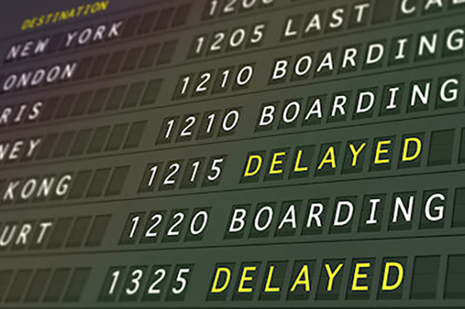
Ask any airline executive what matters most, and on-time performance (OTP) will be near the top of the list. OTP drives passenger satisfaction, route profitability, and brand loyalty. But one of the biggest threats to OTP is not weather or mechanical issues. It is fueling.
Fuel operations remain one of the least digitized aspects of airline infrastructure. At many airports, dispatchers rely on paper fuel receipts, spreadsheets, emails, phone calls, and end-of-month inventory reports to coordinate fueling. When a flight changes gates or arrives early, the fueling team often has no way of being informed or aware of the change. This may result in flight delays of at least 40 minutes just to get fuel to the right aircraft.
This is not a one-off. It happens every day.
And passengers notice. When fueling is late, the entire turnaround begins to unravel. Gates clog. Crews run out of hours. Connections are missed. What starts as a logistics issue quickly becomes a customer service crisis.
There is a better way, and we have seen it firsthand. At Manchester Airport in the UK, North Air was manually entering flight data for more than 200 aircraft per day. After adopting i6’s digital fueling platform, they cut fuel-related delays by 92%. In another instance, American Airlines eliminated all fueling delays after implementing i6’s system to gain real-time visibility across multiple providers.
And the value goes far beyond just avoiding delays: digital refueling technology can also save operators thousands of dollars. For example, in the U.S., airlines typically manage the fuel ordering process end-to-end. With accurate data, airlines can verify that the amount of fuel ordered matches what was delivered and invoiced, which helps prevent waste and enables accurate financial reconciliation.
Outside the U.S., the fueling model is frequently different. Airlines often operate on an ‘into-wing’ basis from the fuel suppliers to manage supply and delivery. These suppliers carry financial exposure every time fuel is dispensed before it is invoiced and paid for. The faster they can bill accurately, the lower their risk—not just financially, but also in meeting strict trade controls, sanctions, and tax regulations. Airlines are often willing to negotiate payment terms, but only if they fully trust the numbers. Digital systems create that trust because both sides know the data is accurate.
Passengers may not know what caused their delay, but they remember how it made them feel. Fueling-related disruptions lower NPS, increase operational costs, and weaken trust. A single delay is frustrating. A pattern becomes a business risk.
Digitizing fueling is no longer a luxury; it is a necessity. Many parts of the aviation ecosystem, including crew scheduling, maintenance, and more, have already made the transition to digitization. Fueling lags behind because the data has been historically hard to access between many stakeholders, therefore, refueling processes around the globe remain fragmented.
But that is no longer a valid reason. The tools exist. The results are proven. Airlines that act now will gain a performance edge and a stronger passenger experience.
By: Alex Mattos, Co-Founder, i6 Group
*Find out more about i6's engagement in the IATA's Strategic Partnerships Program on the partners directory.